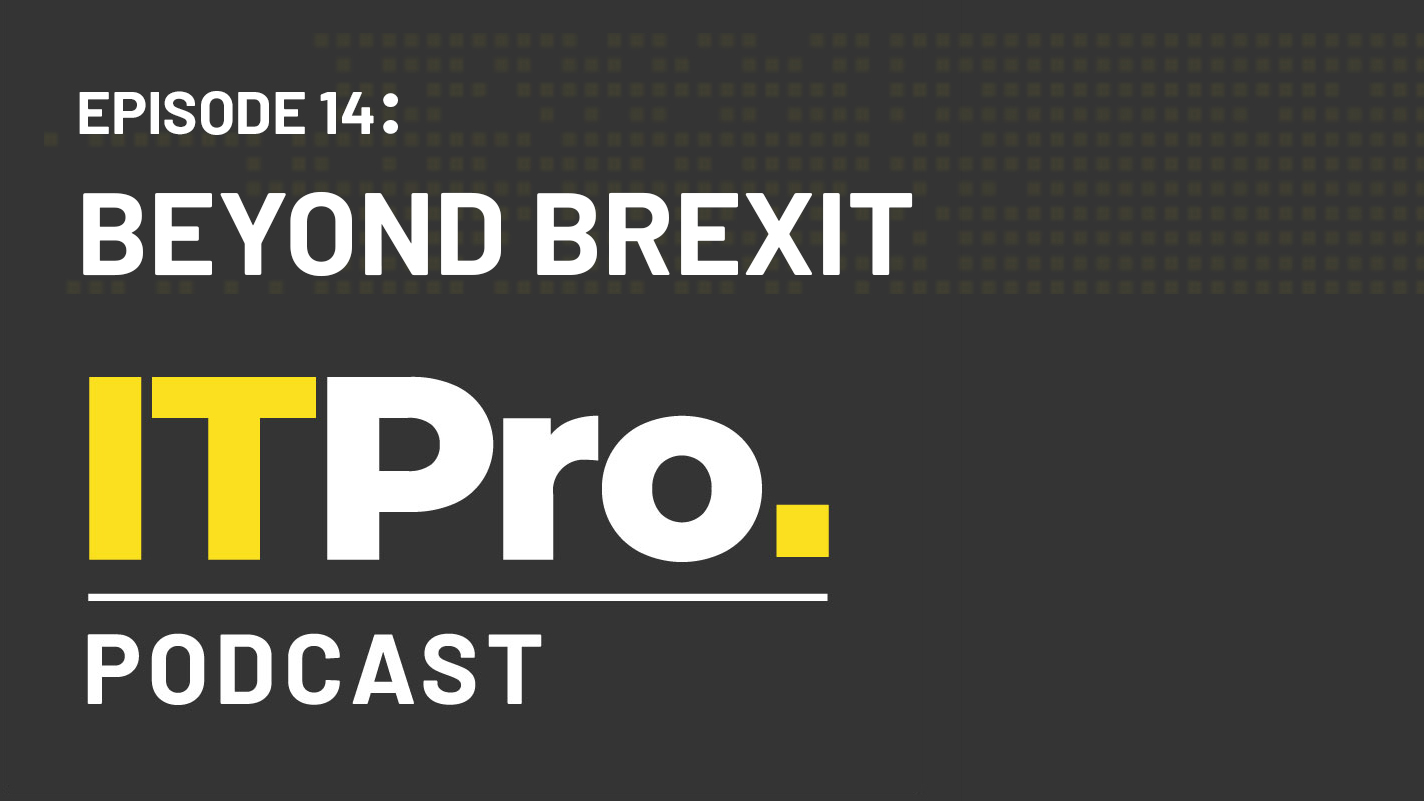Deal or no deal, is the UK channel finally ready for Brexit?
No one yet knows the exact terms on which the UK will begin its life outside the EU in January — or how it will affect the channel

Despite continued uncertainty and a rising chance of no deal, the channel needs to prepare for a slew of changes when the Brexit transition period ends on 31 December 2020.
Even with an agreement, supply chains, lead times, hiring strategies, regulatory compliance and more will need to evolve – with potential cost increases attached.
Andrew Buss, research director at IDC, notes that more due diligence on contracts and service levels will be required, with longer lead times for inventory, and customs processed on the UK border. This probably doesn't mean a resurgence in UK assembly, however.
"We used to have bigger assembly plants in Scotland that could actually be built up again. But it may be simpler to just buy from the EU and pay the tariff," he says.
"And it's likely we'll be shut out of any integrated European assembly process, because of tariff and non-tariff barriers and the timescales required for transport."
Although large manufacturers may have their own arrangements, smaller independent assemblers will likely need to work with sub-assembly in different locations or focus on local customisations.
The biggest bugbear is likely to be non-tariff barriers, rather than tariffs, making the UK a small, less attractive market.
ChannelPro Newsletter
Stay up to date with the latest Channel industry news and analysis with our twice-weekly newsletter
Any deal at this late date, he notes, is likely to be bare bones rather than include comprehensive detail that will ease the path for trade.
Graham Jones, UK managing director of Exclusive Networks, says the VAD had already increased resilience and disaster recovery testing during Covid, including reconsideration of how best to motivate and manage teams.
Since then, they've worked to ensure all contracts cover both the UK and Ireland operations – but cost and red tape increases are expected, meaning the company will still have to work out exactly what and how much can be reasonably passed on to customers.
He says the uncertainty itself is adding to the impact – not least because customers continue to debate whether to move outside the UK to retain EU access, delaying some IT projects.
"As a business that exports 15% of our sales across the world, we need clear rules," Jones confirms, adding that it already buys from Taiwan and the US which should help reduce exposure to EU issues.
"Our government likes forms and red tape," he adds. "We have very active HR and logistics departments. We will look to automate what we can. Meanwhile, we see TV adverts telling us to prepare, but not what to prepare for. No-deal will likely just add to the hurt."
Alex Tatham, managing director at distributor Westcoast, highlights a 'new normal' of higher production costs and compliance procedures in the channel, which resellers too should prepare for by consulting resources such as the British Chamber of Commerce checklist, and registering for UK and EU Economic Operators Registration and Identification (EORI) numbers.
"We have assumed a 'no-deal/free trade agreement' all the way along," he adds. "As a critical part of the supply chain, we have focused on getting our processes right, storing commodity codes and checking potential tariffs, liaising with our suppliers on changes."
Westcoast has also bolstered freight forwarder relationships, bonded its warehouse, and increased stockholding and warehouse capacity over December and January and in Ireland and France, amid other actions such as recruiting additional international shipping staff.
"The main supply chain issues will be delays at port," Tatham confirms. "While these may be serious to start with, most customers have been relaxed about the extra time for imports. Westcoast is assisting customers with international shipping requirements."
Richard Lockey, country manager at cloud services provider Crayon UK, doesn't ship physical product and doesn't feel cloud consumption and related transactions should be impacted, although staff visas and qualifications, especially if they work across countries, may require attention.
"Relevant visas must be in place to allow our EU staff to continue working in the UK. We do remain concerned about the effect of trading conditions in general, so will watch for potential impacts on our clients and partners," Lockey says.
"I don’t envisage costs going up [for us] unless there is an impact on foreign exchange (FX). A lot of the cloud consumption and software that we transact is pegged to the US dollar and other currencies. I would hope that labour costs will remain steady."
Robin Ody, senior analyst at Canalys, reports that hardware imports will be subject to a new UK global tariff and other possible duties. If it's no-deal, the UK falls subject to WTO rules and will need to negotiate separate deals with all countries – inside or outside the EU.
"Delayed product delivery, higher prices due to weaker currency and higher real prices are probable at least in the short-term," Ody confirms. "The trouble with no-deal is there will be no possibility to minimise price differentials by buying through the EU. The unpredictability of separate bilateral trade deals, which will take years to negotiate, is in the pricing and planning."
Cloud may become more appealing as companies work to get round issues of infrastructure hardware supply. Current data regulations, which resemble quite closely those of the EU, will continue to be policy, but no one knows how the UK might respond to US pressures around data sovereignty, Ody says.
UK immigration rules are "strict and labyrinthine", he adds, with the Australian-style points system set to make the UK less attractive to students and younger people.
"It is not the 'high-skilled' people the UK says it wants to attract who are the issue but those with less obvious skills on paper that can grow into tomorrow's leaders and engineers," says Ody.
"Overall, there is little that partners can do to prepare in a predictable sense for no-deal because even no-deal is not a defined problem. They have to hope the UK government does not act foolishly, and provides some basis for planning."
Fleur Doidge is a journalist with more than twenty years of experience, mainly writing features and news for B2B technology or business magazines and websites. She writes on a shifting assortment of topics, including the IT reseller channel, manufacturing, datacentre, cloud computing and communications. You can follow Fleur on Twitter.
-
 CISA issues warning in wake of Oracle cloud credentials leak
CISA issues warning in wake of Oracle cloud credentials leakNews The security agency has published guidance for enterprises at risk
By Ross Kelly
-
 Reports: White House mulling DeepSeek ban amid investigation
Reports: White House mulling DeepSeek ban amid investigationNews Nvidia is caught up in US-China AI battle, but Huang still visits DeepSeek in Beijing
By Nicole Kobie
-
 Non voyage: Coronavirus, Brexit and the future of business travel
Non voyage: Coronavirus, Brexit and the future of business travelIn-depth The current pandemic and the UK’s impending departure from the EU could have grave consequences for corporate travel
By Carly Page
-
 The IT Pro Podcast: Beyond Brexit
The IT Pro Podcast: Beyond BrexitIT Pro Podcast The UK has officially left the EU, so what happens now?
By IT Pro
-
 Brexit 'could damage' UK tech firm valuations
Brexit 'could damage' UK tech firm valuationsNews However, report finds M&A will be buoyant over the next 12 months
By Clare Hopping
-
 Brexit vote ‘has disrupted UK IT spending’
Brexit vote ‘has disrupted UK IT spending’News Uncertainty caused by referendum has made firms hesitant to make IT investments
By Jane McCallion
-
 Brexit uncertainty causes drop in foreign tech workers
Brexit uncertainty causes drop in foreign tech workersNews New report by Hired shows EU tech workers are worried about their jobs
By Zach Marzouk
-
 Snapchat is set to open a London office
Snapchat is set to open a London officeNews Parent company Snap eschews Ireland tax rates enjoyed by Facebook and Google
By Dale Walker
-
 Theresa May pledges £2bn a year in science and tech R&D
Theresa May pledges £2bn a year in science and tech R&DNews Industrial Strategy Challenge Fund to back advancements in AI and biotech
By Rene Millman
-
 Fujitsu execs outline Brexit concerns
Fujitsu execs outline Brexit concernsNews Fujitsu executives say they are looking for specific outcomes in a potential Brexit deal
By Thomas McMullan